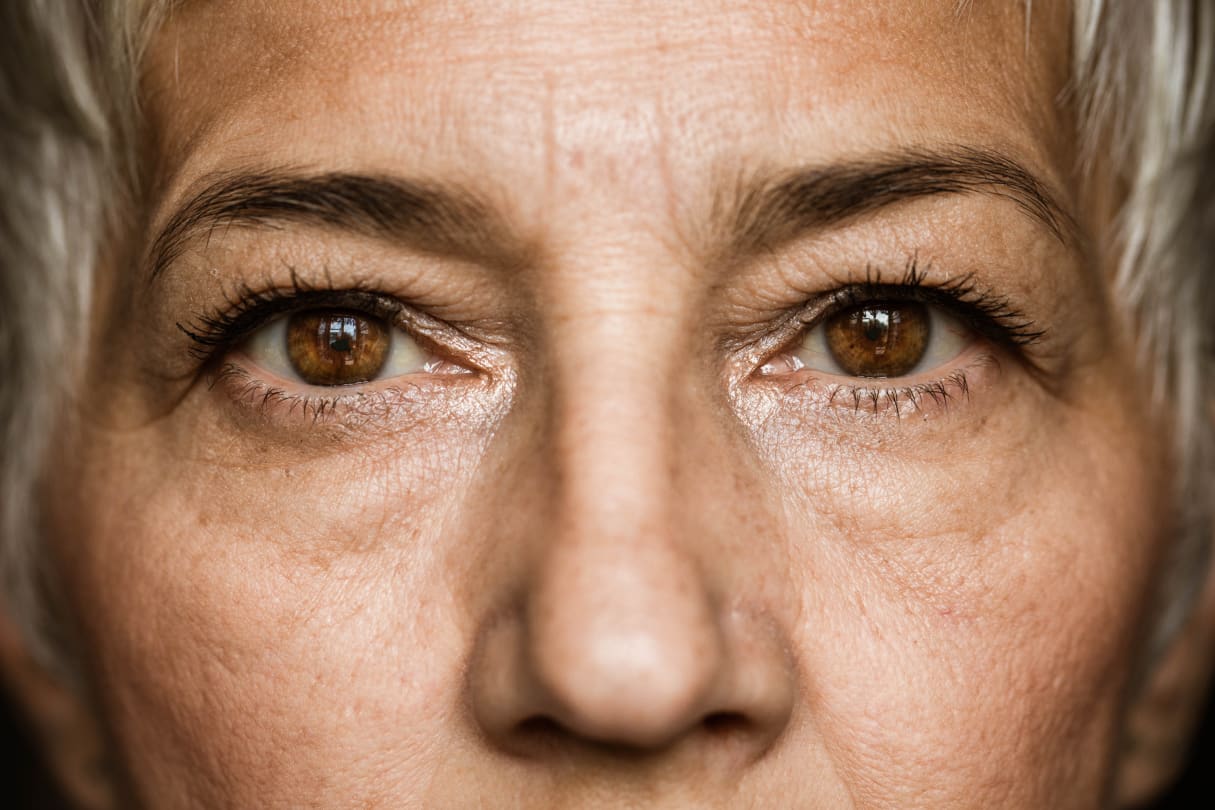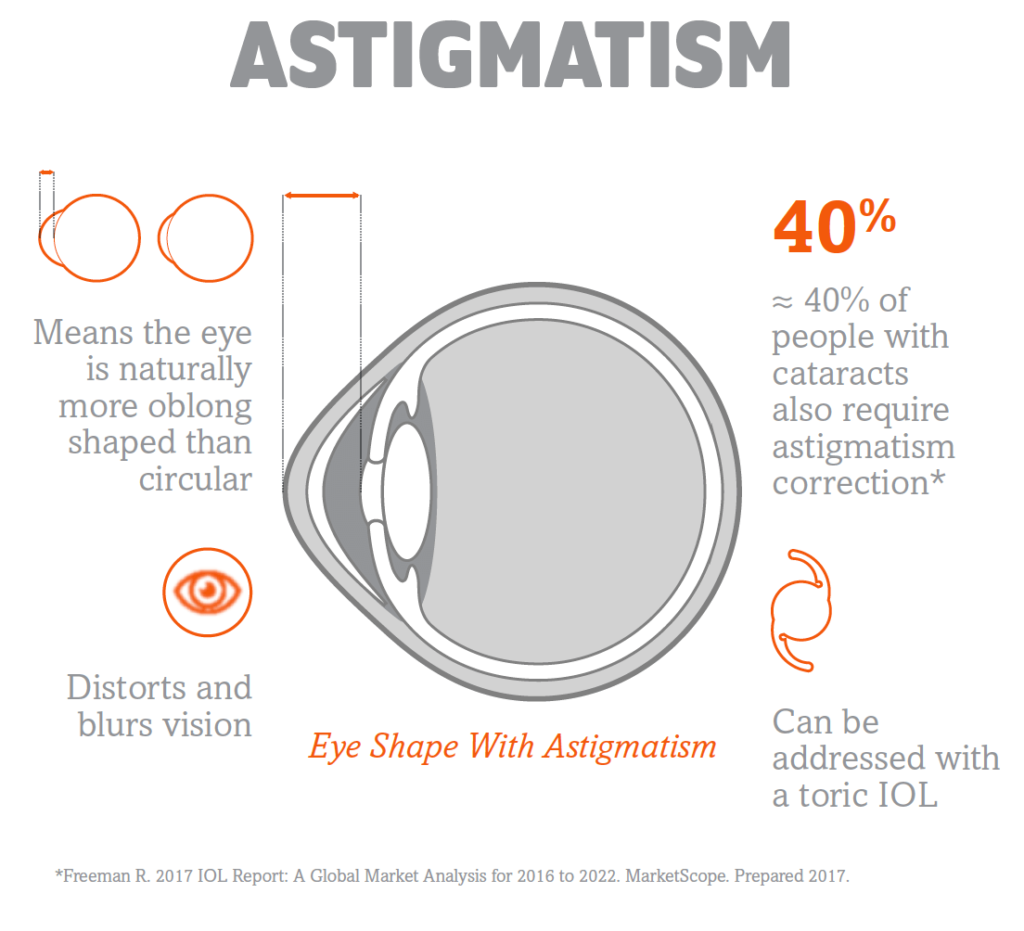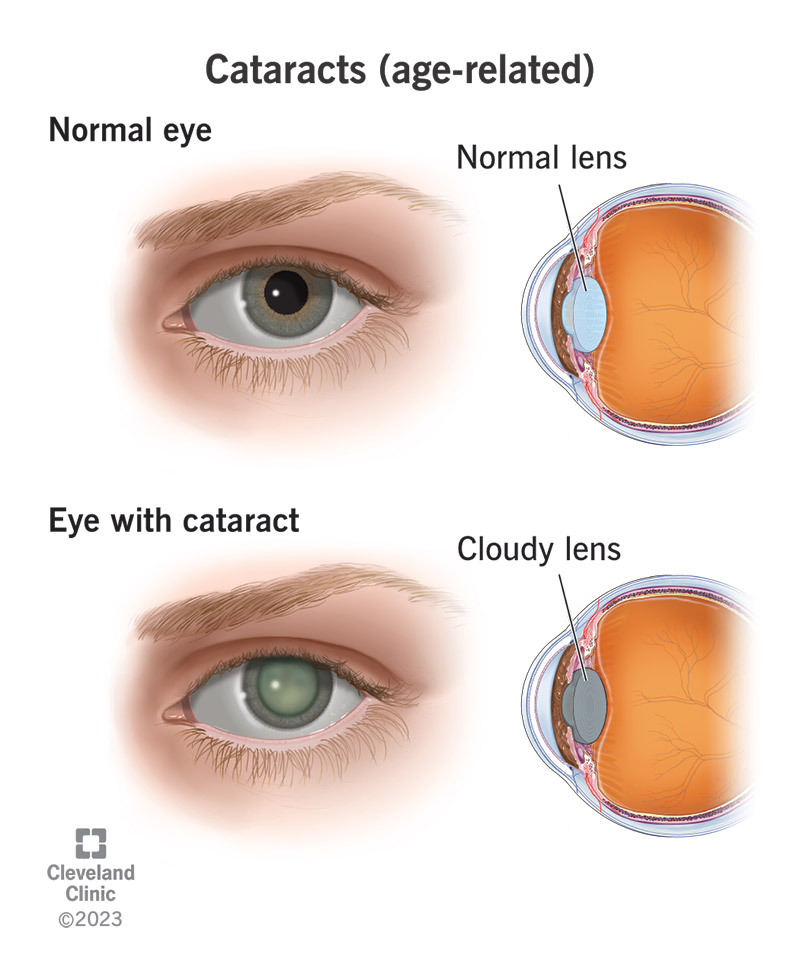Antwort Does cataract surgery correct vision to 20 20? Weitere Antworten – Is 20 20 vision restored after cataract surgery

It is not uncommon for a patient to experience new visual sensations and perceptions immediately after cataract surgery in both eyes. Generally speaking, vision of 20/20 in one eye and 20/25 in the fellow eye is a very good result.Depending on the type of cataract surgery and artificial lenses you have implanted, you may be able to see better than you have in a while. With advanced technology intraocular lens implants, your vision may be corrected entirely so that you can see fine print, far away, and at night without glasses or contacts.Once you have your cataracts removed, you can keep the same vision you had before surgery (meaning if you were nearsighted before surgery, you can choose a lens that will keep you nearsighted after surgery), or you can elect to have your vision corrected by choosing an IOL that improves how well you see up close, far …
How long does it take to see 20 20 after cataract surgery : Some patients see the improvement in several hours, though most take 24-48 hours. It can occasionally take 1-2 weeks for vision to settle while the eye adapts to the new intraocular lens implant (IOL).
What percentage of people get 20 20 vision after cataract surgery
Data from a study of 368,256 cataract surgeries show that corrected visual acuity (CDVA) of 0.5 (20/40) or better was achieved in 94.3% and CDVA of 1.0 (20/20) or better was achieved in 61.3% of cases (Lundstrom, Barry, Henry, Rosen & Stenevi, 2013).
What percentage of patients have 20 20 vision after cataract surgery : That's important because determining exactly where in the eye the IOL will end up — the effective lens position — determines how close the surgeon can get the patient to 20/20 vision. Studies show that 30 to 50 percent of people who have cataract surgery still need glasses after surgery.
While the goal of cataract surgery is to improve vision, some patients may experience visual disturbances after surgery, such as glare or halos around lights. These symptoms are usually temporary but can affect daily activities during the initial recovery period.
Posterior Capsular Opacification
PCO can cause blurry or distorted vision. This condition is fairly common for patients receiving cataract surgery. Approximately 20% of patients experience PCO within 2–5 years of their procedure. However, a quick surgery known as posterior capsulotomy can help restore your vision.
Why do people’s eyes look different after cataract surgery
Cataract surgery doesn't affect how your eye physically looks. The color of your iris doesn't change, and the IOL isn't visible. You may, however, notice some temporary side effects: Slight bruising at the anesthesia injection site, which should fade within a few days.Sometimes blurry vision is caused by PCO, a fairly common complication that can occur weeks, months or (more frequently) years after cataract surgery. It happens when the lens capsule, the membrane that holds your new, intraocular lens in place, becomes hazy or wrinkled and starts to cloud vision.Despite good cataract surgery, vision will not be 20/20 if an incorrect IOL power has been calculated. If anterior and posterior segment examinations are within normal limits, this points toward refractive error as the cause of decreased vision.
Cataract surgery is usually permanent. The new artificial lens, called an intraocular lens (IOL), is designed to last the rest of your life. Most people do not need additional surgery after cataract surgery. Since the artificial lens is made of durable synthetic material, your cataract cannot return to that lens.
Do most people still need glasses after cataract surgery : Cataract surgery isn't a magic bullet that fixes all your vision problems. While it's an effective way to get rid of cataracts, many people find they still need glasses afterward—at least for some activities.
Why is vision not improved after cataract surgery : Many factors can decrease vision after cataract surgery. A common finding is a posterior capsule opacity which is essentially a build-up of various proteins on the back side of your new lens implant. This can be cleared in the office with a laser known as a YAG capsulotomy.
Why don’t you see better after cataract surgery
Any inflammation within the eye following cataract surgery is the body's natural response to having the eye's lens removed. This reaction causes blurry vision, but your eye doctor can prescribe medication to help.
That's important because determining exactly where in the eye the IOL will end up — the effective lens position — determines how close the surgeon can get the patient to 20/20 vision. Studies show that 30 to 50 percent of people who have cataract surgery still need glasses after surgery.After surgery, your brain may need time to adjust to the new lens and how light is entering your eye. Swelling and inflammation: It is normal for the eye to be slightly swollen and inflamed after cataract surgery, which can affect your ability to focus and read. This usually subsides within a few days or weeks.
Is it normal to have blurry vision 4 weeks after cataract surgery : Some people may have clear vision within a day after having cataract surgery. But for other people it may take several days for blurred vision to go away. If you still have blurry vision several weeks after your cataract surgery, follow up with your ophthalmologist to rule out potential complications.







